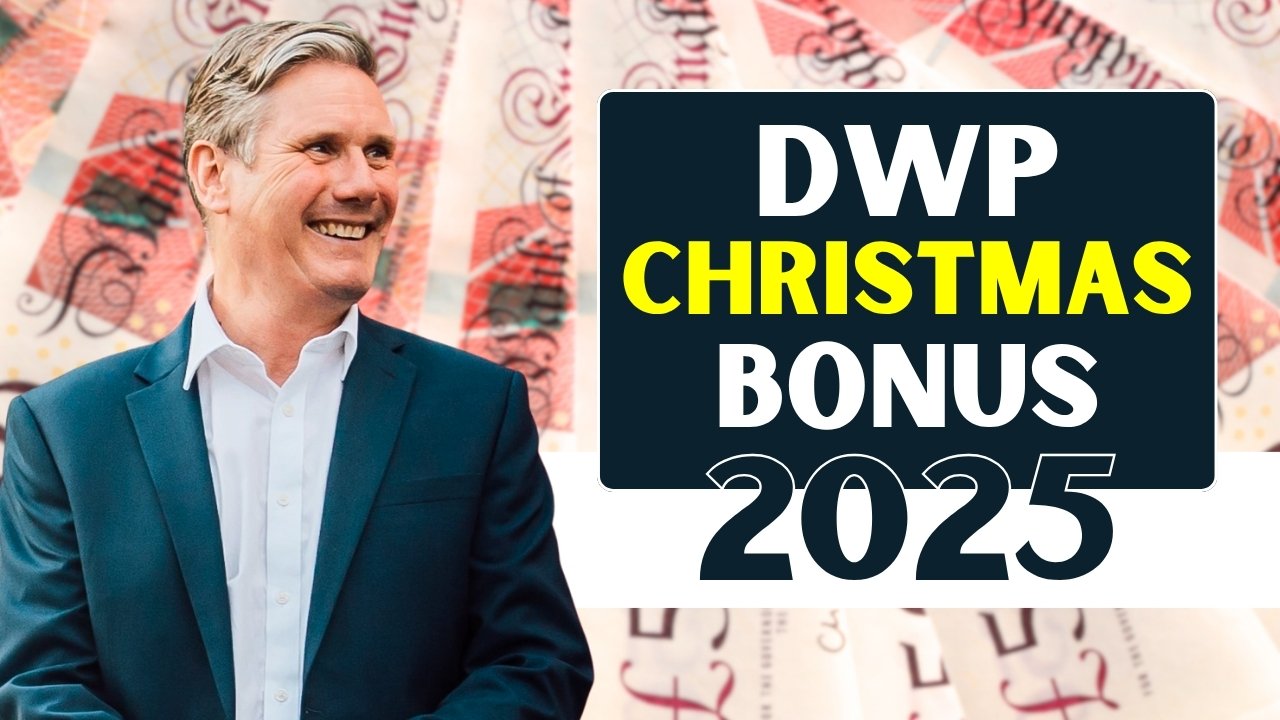The UK Christmas Bonus is a small yet meaningful financial gesture from the government that adds a touch of cheer during the festive season. Each year, eligible recipients receive a tax-free £10 payment in the weeks leading up to Christmas, serving as a traditional benefit for millions of pensioners and people on qualifying allowances.
Though modest in amount, this bonus has become an important part of the government’s end-of-year support system, especially for individuals on fixed incomes. The payment is made automatically, ensuring no one misses out due to application delays or paperwork issues.
In 2025, the Department for Work and Pensions (DWP) is expected to issue the Christmas Bonus once again, continuing the annual tradition that dates back to 1972.
Table of Contents
Understanding the UK Christmas Bonus
The Christmas Bonus is a one-off annual payment of £10, provided before Christmas to eligible individuals receiving certain benefits or pensions. It typically arrives in the first full week of December, helping claimants manage extra seasonal expenses.
The bonus is automatically credited into the same account where other benefits are received and usually appears on statements as ‘DWP XB’. Importantly, it is tax-free and does not reduce or interfere with any other ongoing payments.
How the Payment Works
The DWP issues the £10 bonus directly into the same bank or building society account where regular benefit payments are made. There’s no need to apply or confirm eligibility manually.
For most recipients, the payment appears automatically by mid-December, though exact dates may vary. If it hasn’t arrived by 1 January, individuals are advised to contact Jobcentre Plus or the Pension Service to resolve any issues.
The payment process remains smooth and automatic to ensure all eligible citizens receive their bonus without delays or confusion.
Who Qualifies for the Christmas Bonus?
To qualify for the Christmas Bonus in 2025, a claimant must meet two main requirements during the qualifying week, which is usually the first full week of December.
First, the individual must be present or ordinarily resident in the UK, the Channel Islands, the Isle of Man, or Gibraltar during that week. Certain individuals living in the European Economic Area (EEA) or Switzerland may also remain eligible, depending on their benefit status.
Second, they must be receiving at least one qualifying benefit during that period.
List of Qualifying Benefits
The DWP issues the £10 payment to recipients of any of the following benefits:
- State Pension (including Graduated Retirement Benefit)
- Pension Credit (Guarantee Element)
- Personal Independence Payment (PIP)
- Disability Living Allowance (DLA)
- Attendance Allowance
- Carer’s Allowance
- Carer Support Payment
- Adult Disability Payment
- Child Disability Payment
- Pension Age Disability Payment
- Armed Forces Independence Payment
- Constant Attendance Allowance
- Industrial Death Benefit
- Mobility Supplement
- War Widow’s or War Disablement Pension
- Contribution-based Employment and Support Allowance (after the first 13 weeks)
- Severe Disablement Allowance
- Incapacity Benefit (long-term rate)
- Unemployability Supplement or Allowance
- Widowed Parent’s Allowance or Widow’s Pension
Those who have not yet claimed their State Pension and are not receiving any of the listed benefits will not qualify for the Christmas Bonus.
Payments for Couples and Civil Partners
Couples can both receive the Christmas Bonus if they each qualify individually. However, even if one partner does not receive a qualifying benefit, they may still be eligible under special conditions:
- Both must be over State Pension age by the end of the qualifying week.
- Both must be resident in the UK, Channel Islands, Isle of Man, Gibraltar, EEA, or Switzerland.
- Additionally, one of the following must apply:
- The eligible partner receives an increase of a qualifying benefit for their spouse or civil partner.
- The only qualifying benefit being received is Pension Credit.
This ensures that couples in shared financial circumstances receive fair consideration during the holiday season.
No Need to Apply – Automatic Payments
One of the most convenient aspects of the Christmas Bonus is that no separate claim is required. The DWP identifies eligible recipients automatically using their benefit records. This eliminates paperwork and guarantees smooth delivery to millions of people each year.
If someone believes they were eligible but did not receive the payment, contacting the appropriate Jobcentre Plus or Pension Service office is recommended after 1 January. They can verify eligibility and process any missed payments.
Why the Bonus Still Matters
Although £10 may not significantly ease financial pressure in today’s economy, the Christmas Bonus continues to hold strong sentimental and symbolic value. It reflects recognition and gratitude toward pensioners, carers, and individuals receiving disability or long-term benefits.
At a time when many face increased living costs, this gesture reinforces the idea that every citizen deserves acknowledgment and kindness during the festive season. For those living on modest incomes, even a small amount can bring warmth and reassurance.
Possible Updates and Public Discussions
Each year, public debate arises over whether the £10 Christmas Bonus should be increased to reflect modern living costs and inflation. As of 2025, the government has made no official announcements about raising the amount, maintaining it as a fixed symbolic payment.
Still, for millions of people across the UK, the Christmas Bonus remains a valued reminder that the festive spirit extends beyond celebration, it includes care and recognition for those who need it most.



The Government think their doing a good thing. £10 in this day and age is nothing it hardly takes you into town, certainly doesn't help with anything for Xmas. Everything else has went up, why not this payment.
Why has the Xmas bonus stayed at £10 since Inflation has risen but the Xmas bonus has stayed the same since 1970s